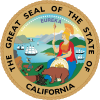A recall election is a procedure by which, in certain polities, voters can remove an elected official from office through a direct vote before that official's term has ended. Recalls, which are initiated when sufficient voters sign a petition, have a history dating back to the constitution in ancient Athenian democracy and feature in several current constitutions. In indirect or representative democracy, people's representatives are elected and these representatives serve for a specific period of time. However, where the facility to recall exists, if any representative comes to be perceived as not properly discharging their responsibilities, they can be called back with the written request of a specific number or proportion of voters. Recall elections are most commonly found within the United States, and are considered by groups such as ACE Electoral Knowledge Network the most rarely used form of direct democracy.

In California, a ballot proposition is a referendum or an initiative measure that is submitted to the electorate for a direct decision or direct vote. If passed, it can alter one or more of the articles of the Constitution of California, one or more of the 29 California Codes, or another law in the California Statutes by clarifying current or adding statute(s) or removing current statute(s).
In the politics of the United States, the process of initiatives and referendums allow citizens of many U.S. states to place new legislation, or to place legislation that has recently been passed by a legislature on a ballot for a popular vote. Initiatives and referendums, along with recall elections and popular primary elections, are signature reforms of the Progressive Era; they are written into several state constitutions, particularly in the West. It is a form of direct democracy.
Same-sex marriage is legal in the U.S. state of California. The state first issued marriage licenses to same-sex couples June 16, 2008 as a result of the Supreme Court of California finding in In re Marriage Cases that barring same-sex couples from marriage violated the state's Constitution. The issuance of such licenses was halted from November 5, 2008 through June 27, 2013 due to the passage of Proposition 8—a state constitutional amendment barring same-sex marriages. The granting of same-sex marriages recommenced following the United States Supreme Court decision in Hollingsworth v. Perry, which restored the effect of a federal district court ruling that overturned Proposition 8 as unconstitutional.

Tom Ammiano is an American politician and LGBT rights activist from San Francisco, California. Ammiano, a member of the California Legislative LGBT Caucus, served as a member of the California State Assembly from 2008 to November 30, 2014. He had previously been a member of the San Francisco Board of Supervisors and had mounted an unsuccessful bid for mayor of San Francisco in 1999. He was succeeded as California's Assemblyman for District 17 by San Francisco Board of Supervisors President David Chiu on December 1, 2014.

The rights of lesbian, gay, bisexual, and transgender (LGBT) people in the U.S. state of Utah have significantly evolved in the 21st century. Protective laws have become increasingly enacted since 2014, despite the state's reputation as socially conservative and highly religious. Same-sex marriage has been legal since the state's ban was ruled unconstitutional by federal courts in 2014. In addition, statewide anti-discrimination laws now cover sexual orientation and gender identity in employment and housing, and the use of conversion therapy on minors is prohibited. In spite of this, there are still a few differences between the treatment of LGBT people and the rest of the population.

Equality California or EQCA is a non-profit civil rights organization that advocates for the rights of LGBT people in California. It is the largest statewide LGBT organization in the United States and the largest member of the Equality Federation. The organization is currently based in Los Angeles.
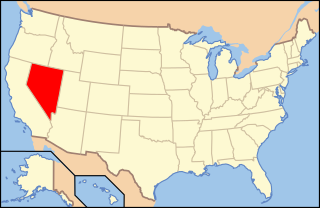
Lesbian, gay, bisexual, and transgender (LGBT) persons in the U.S. state of Nevada enjoy the same liberties experienced by non-LGBT Nevadans. Same-sex marriage has been legal since October 8, 2014, due to the federal Ninth Circuit Court of Appeals ruling in Sevcik v. Sandoval. Same-sex couples may also enter a domestic partnership status that provides many of the same rights and responsibilities as marriage. However, domestic partners lack the same rights to medical coverage as their married counterparts and their parental rights are not as well defined. Same-sex couples are also allowed to adopt, and state law prohibits unfair discrimination on the basis of sexual orientation and gender identity, among other categories, in employment, housing and public accommodations. In addition, conversion therapy on minors is outlawed in the state.
Transgender rights in the United States vary considerably by jurisdiction. In 2021, at least 117 bills were introduced in 33 states to restrict the rights of transgender people.
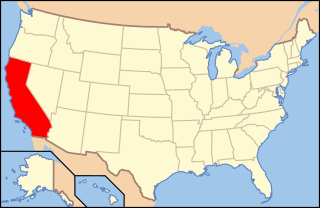
California is seen as one of the most liberal states in the U.S. in regard to lesbian, gay, bisexual, transgender (LGBT) rights, which have received nationwide recognition since the 1970s. Same-sex sexual activity has been legal in the state since 1976. Discrimination protections regarding sexual orientation and gender identity or expression were adopted statewide in 2003. Transgender people are also permitted to change their legal gender on official documents without any medical interventions, and mental health providers are prohibited from engaging in conversion therapy on minors.
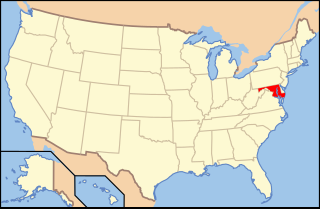
Lesbian, gay, bisexual, and transgender (LGBT) persons in the U.S. state of Maryland enjoy the same rights as non-LGBT people. Maryland has had statewide protections against discrimination based on an individual's sexual orientation since 2001 and gender identity since 2014. Legislation to legalize same-sex marriage in Maryland was approved by voters on November 6, 2012 and went into effect on January 1, 2013. Today, the state of Maryland is regarded as one of the most LGBT-friendly states in the country, with a 2017 Public Religion Research Institute showing that two-thirds of Marylanders supported same-sex marriage. Additionally, a ban on conversion therapy on minors became effective on October 1, 2018. In October 2020, Montgomery County within Maryland passed unanimously an ordinance that implemented a LGBTIQ+ bill of rights.

Lesbian, gay, bisexual, and transgender (LGBT) rights in the U.S. state of Washington have evolved significantly since the late 20th century. Same-sex sexual activity was legalized in 1976. LGBT people are fully protected from discrimination in the areas of employment, housing and public accommodations; the state enacting comprehensive anti-discrimination legislation regarding sexual orientation and gender identity in 2006. Same-sex marriage has been legal since 2012, and same-sex couples are allowed to adopt. Conversion therapy on minors has also been illegal since 2018.

Lesbian, gay, bisexual, and transgender (LGBT) persons in the U.S. state of Maine enjoy the same rights as non-LGBT people, including the ability to marry and adopt. Same-sex marriage has been recognized in Maine since December 2012, following a referendum in which a majority of voters approved an initiative to legalize same-sex marriage. Discrimination on the basis of sexual orientation and gender identity is prohibited in the areas of employment, housing, credit and public accommodations. In addition, the use of conversion therapy on minors has been outlawed since 2019.
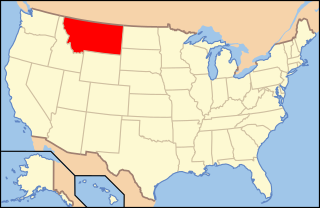
Lesbian, gay, bisexual, and transgender (LGBT) persons in the U.S. state of Montana may face some legal challenges not experienced by non-LGBT residents. Same-sex sexual activity has been legal in Montana since 1997. Same-sex couples and families headed by same-sex couples are eligible for all of the protections available to opposite-sex married couples, as same-sex marriage has been recognized since November 2014. State statutes do not address discrimination on the basis of sexual orientation and gender identity; however, the U.S. Supreme Court's ruling in Bostock v. Clayton County established that employment discrimination against LGBT people is illegal under federal law. A number of cities also provide protections in housing and public accommodations.
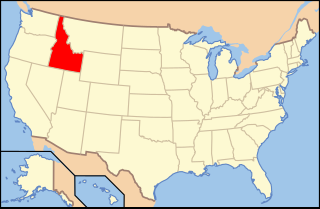
Lesbian, gay, bisexual and transgender (LGBT) people in the U.S state of Idaho face some legal challenges not experienced by non-LGBT people. Same-sex sexual activity is legal in Idaho, and same-sex marriage has been legal in the state since October 2014. State statutes do not address discrimination based on sexual orientation and gender identity; however, the U.S. Supreme Court's ruling in Bostock v. Clayton County established that employment discrimination against LGBT people is illegal under federal law. A number of cities and counties provide further protections, namely in housing and public accommodations. A 2019 Public Religion Research Institute opinion poll showed that 71% of Idahoans supported anti-discrimination legislation protecting LGBT people, and a 2016 survey by the same pollster found majority support for same-sex marriage.

The Pacific Justice Institute (PJI) is a conservative legal defense organization in California, United States.
Fair, Accurate, Inclusive, and Respectful Education Act, also known as the FAIR Education Act and informally described by media outlets as the LGBT History Bill, is a California law which compels the inclusion of the political, economic, and social contributions of persons with disabilities and lesbian, gay, bisexual, and transgender people into educational textbooks and the social studies curricula in California public schools by amending the California Education Code. It also revises the previous designation of "black Americans, American Indians, Mexicans, Asians, [and] Pacific Island people" into a list considered Indigenous peoples of the Americas. It would also amend an existing law by adding sexual orientation and religion into a list of characteristics that schools are prohibited from sponsoring negative activities about or teaching students about in an adverse way.
A bathroom bill is the common name for legislation or a statute that defines access to public toilets by gender or transgender identity. Bathroom bills affect access to sex-segregated public facilities for an individual based on a determination of their sex as defined in some specific way, such as their sex as assigned at birth, their sex as listed on their birth certificate, or the sex that corresponds to their gender identity. A bathroom bill can either be inclusive or exclusive of transgender individuals, depending on the aforementioned definition of their sex. Unisex public toilets are one option to overcome this controversy.
This article addresses the legal and regulatory history of transgender and transsexual people in the United States including case law and governmental regulatory action affecting their legal status and privileges, at the federal, state, municipal, and local level, and including military justice as well.

The Massachusetts Gender Identity Anti-Discrimination Initiative is a state-wide referendum passed by Massachusetts voters in the 6 November 2018 mid-term election that prohibits discrimination in public accommodations on the basis of gender identity. The vote upholds language which was already present in the state anti-discrimination statute, defeating an attempt to veto it by public referendum. It is the first state-wide anti-discrimination statute passed by referendum supporting transgender rights in the United States.
